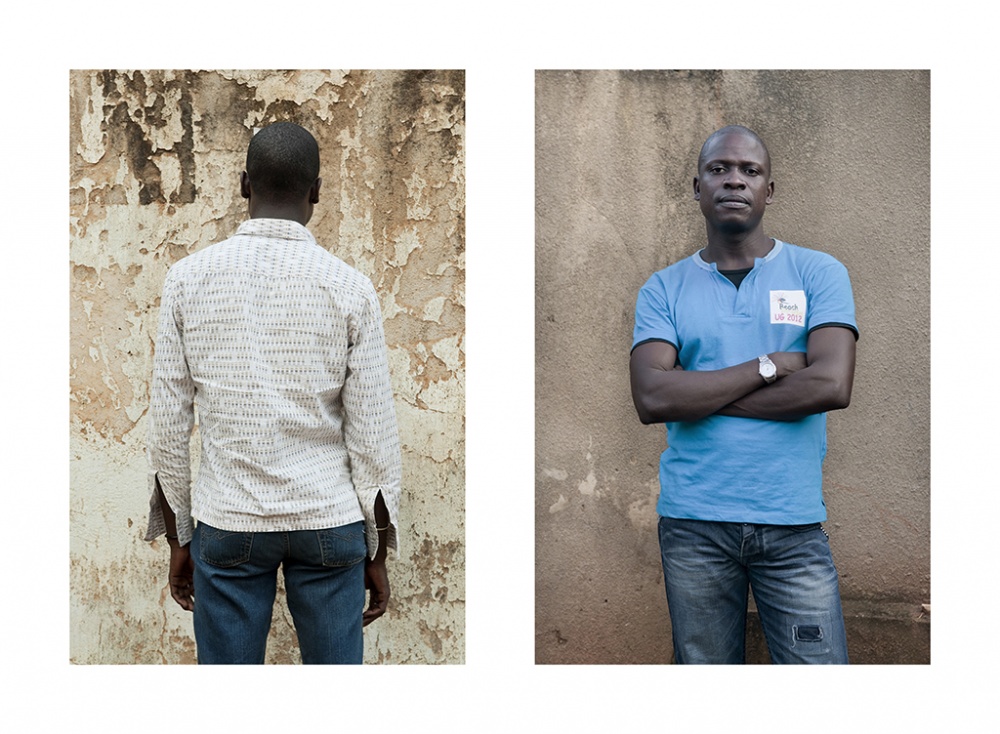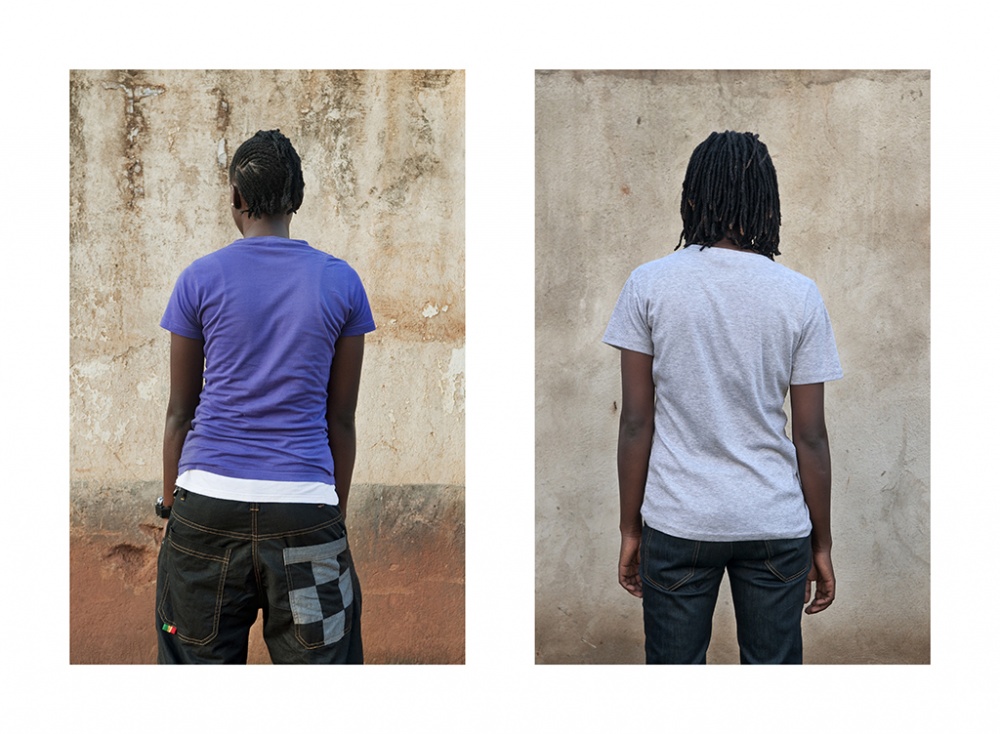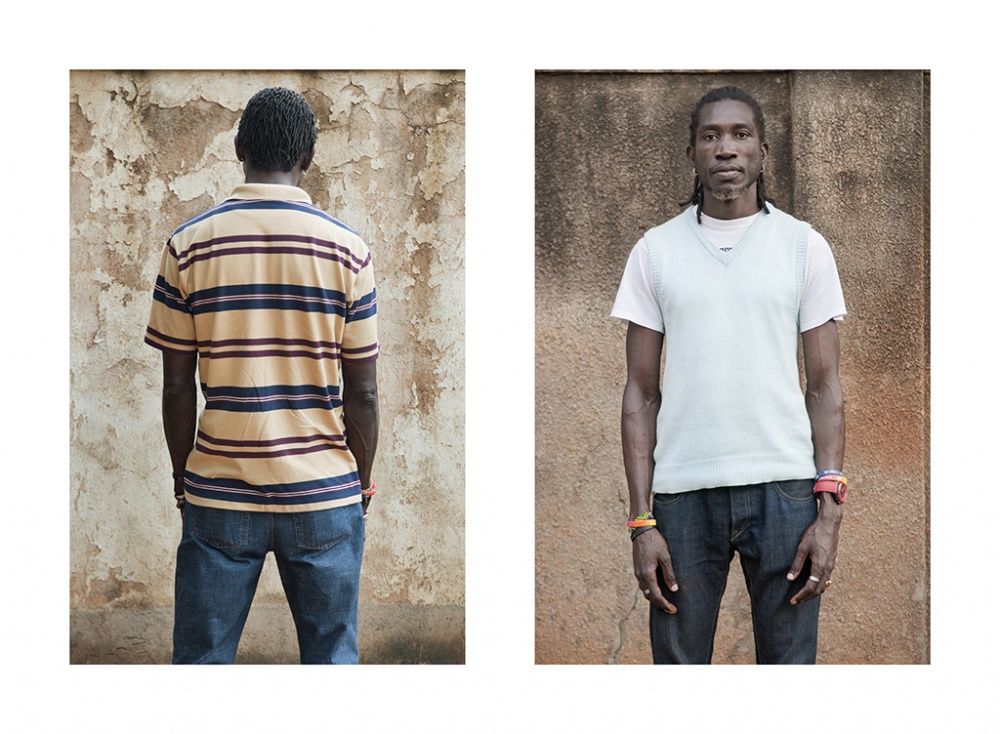*Each diptych portrays the same Ugandan LGBTI (lesbian, gay, bisexual, transgender and intersex) activist in 2010 (on the left) and in 2013 (on the right). The captions are excerpts from interviews conducted in 2010 and 2013.
On December 20, 2013 the Anti-Homosexuality Bill was passed in the Ugandan parliament. The Bill was first introduced in the parliament on October 2009. Under the guise of protecting family values, it proposed life imprisonment for anyone engaged in homosexual activities and the death penalty for “aggravated homosexuality” (such as homosexual activity with a person under 18 years old, if the offender is HIV positive, or if the offender is caught again). Additionally, the Bill prohibited any production and dissemination of information related to homosexuality and prescribed jail time for anyone (including friends, parents, doctors, priests) that fails to report homosexual activity to the authorities. The Bill was met with opposition from human rights groups, western governments, some religious leaders and even Ugandan president Yoweri Museveni distanced himself from the Bill. Homosexuality is already illegal in Uganda and LGBTI persons can lose their jobs, are arrested, harassed, blackmailed, threatend and beaten. Anti-gay sentiment is widespread and outings in tabloid papers are common. The proposed Bill has further exposed these anti-gay feelings in an openly homophobic society that sees itself as showing to the rest of the world how homosexuals should be dealt with.
I started the series in early 2010 when the reporting on the Anti-Homosexuality Bill in Ugandan and international media was largely focused on explanation of the creation, context and consequences of the Bill. Some LGBTI activists working in Kampala were interviewed and their stories of struggles told. Some of them agreed to be identified since they had been outed in the Ugandan media several times before. But, the vast majority of people in the gay community I spoke to didn't want to be identified and their stories were untold. I wanted to address this by finding a way for them to present their views on what it means to be an LGBTI person in Uganda, with the aim to give voice, if not face, to the members of the gay community. After discussions with activists and trying several options, I chose back portraits. I wanted their posture and clothing to show them as individuals albeit anonymous, while the walls speak of the obstacles they face and their exclusion from society. In the interviews they expressed their views of the Bill, of homosexuality in African society and Uganda, and they tell their personal stories of struggle and threats and also their hopes for the future.
For a while it seemed that the Bill will never pass. Then, it was reintroduced in the parliament in late 2012. In the new version, homosexual acts are punishable with 14 years in prison, while aggravated homosexuality will bring life sentence. The Bill was signed by the president to become the law on February 24th 2014 and the future of Ugandan LGBT movement is uncertain.
In 2013, after the Bill was reintroduced in the parliament, I revisited the same people, all of them now LGBTI activists, to see if or how their lives and views have changed. Late Ugandan gay-rights activist David Kato once said, that there are two ways to deal with being gay in Uganda. The first was to hide, the second to be out and proud. In three years, as a reaction to the draconian Bill and to continued outings, and as a result of their activism, the people I met became more empowered, assertive and confident. One of the activists had to flee the country due to threats, but others stayed and despite the risks most were now willing to face the world.














